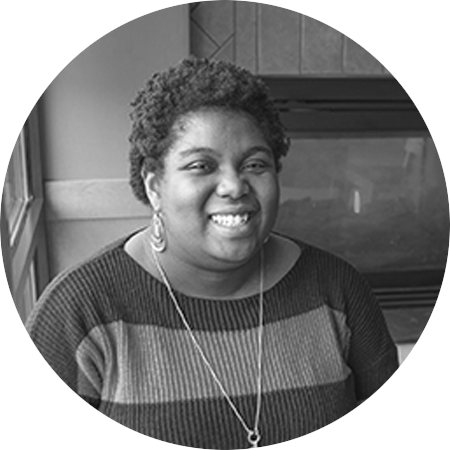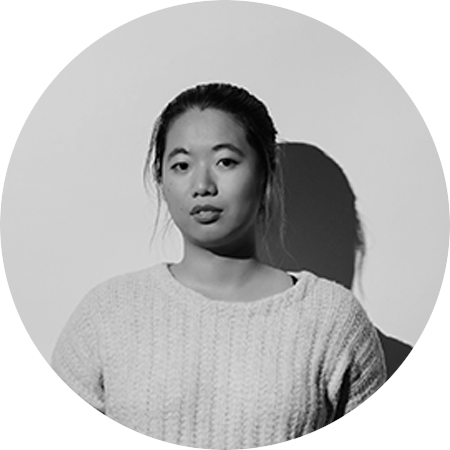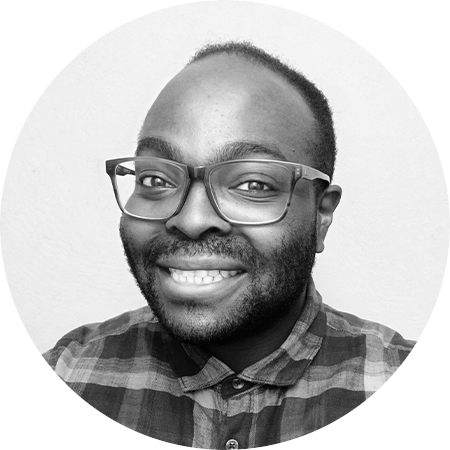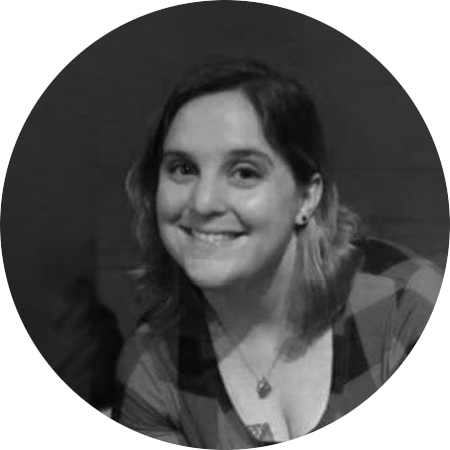We spoke to people from the UK and US new to the games industry about how they got their big break - or took matters into their own hands.
Getting your foot in the door in the games industry isn’t always as simple as landing a job once you’ve graduated. As with many other competitive sectors, getting that first job can be intimidating when rejection is rife and you’re still trying to accumulate experience and skills to stand out. Sometimes an available opportunity may not put you on the right career path, and at worst you can be vulnerable to exploitation.
But what’s it like when you do cut through and get on the first rung of the ladder to your dream job in games? Focusing on the present, where better to get advice on how to get your start in games than from people who have just joined or transitioned to the industry in the past year, ranging from game design to writing, and even becoming your own boss. Together, their experiences and insights may help lay the foundations for the start of your own games career.
Stephanie Glover had spent many years in marketing and copywriting but it wasn’t a role she wanted to build a career for. After a one-year contract at Activision Blizzard, which involved writing promotional material and in-game updates for Call Of Duty, she decided to pivot back to her original aspirations in creative writing.
Connecting with organisation Women in Color Unite, its #StartWith8 mentoring programme was the “game-changer” Glover needed.
Based on her interest for writing for games and TV, she was matched with mentors from Skybound, best known for The Walking Dead, where she met her most important mentor Shawn Kittelsen, VP of the company’s games division.
“He was like, 'Hey, do you know Twine? Make me a Twine game, send it to me, we’ll review it and we can talk about it’,” she says. Not only did this provide opportunity for both feedback and a way to build a portfolio, but Glover’s mentor also encouraged her to acquire more skills in other software, so she also learned to make some small but functioning games on Unity and Unreal, and even a VR game that she collaborated with other people she met via Discord. These experiences may diverge from her focus on writing but she found all of these invaluable.
“If you're just a writer, you can only write, and you're being handheld by other departments, but if you want to work in-engine, if you understand design principles, that's going to help you write,” Glover explains. “Indie studios especially need people that can wear multiple hats. Because if you can write really well and put it in the engine yourself, that’s a big boost over everyone else.”
When she finally got her current job as a writer at Terrible Posture Games, developer of playable sitcom 3 Out Of 10, she admits feeling “over-prepared” for the role, as she has yet to utilise these additional skills in the studio, although they still felt important for her application to stand out after countless rejections from other studios.
“It feels validating, because when you're out there and you're just getting rejected for everything you start to think, ‘Maybe I suck’,” she laughs. “But then when you do get a job and you get the support from people that are in your team, you get that confidence back.”
In fact, Glover has already been promoted to a senior level, having impressed her employer with her initial work as just a part-time contractor. “I asked for the credit bump because they had already given me a lot of additional work than just writing that was equivalent to senior writing,” she says. “I was essentially reviewing other people's work and contributing to the story in ways that nobody else in the writers’ room was.”
Besides giving yourself the best possible chance by making your resume stand out, Glover advises others to always seek feedback from people, whether it’s from colleagues, friends or a mentor. “Don't beat yourself up about any type of feedback, see how you can incorporate it,” she says. “Mentorship is also huge, because without my mentor, I would not have got my current job.”
Despite studying a postgraduate degree in game design, Monica Fan encountered a number of challenges with how to actually become a game designer, frustrated that her professors had little-to-no industry experience in this field while her craft would often be mystified by professionals she met while still a student.
“One designer actually told me you need to have a game design brain, [that] it’s not something you can learn,” she says.
It didn’t help that a few of her early attempts at acquiring experience while studying were either unrelated to game design or from rather questionable companies.'
“Scams are really common because so many people want to work in games,” Fan explains. “One company I worked at was a studio entirely run by unpaid interns - they make really low-quality mobile games and my job was to watch their ads so they could get revenue. Another was a startup for an education game but we were designing everything on physical notebooks - there was no intent to make a game.”
Studying during the pandemic also meant being unable to attend classes in person, which made Fan less close to her professors and cohort, though she also believed the structure of the course was a barrier to building strong networks and teamworking that’s necessary in the industry.
“In grad school, you're always competitive: only certain people can get an A, everyone’s working on a solo project, so there isn’t a team spirit,” she explains. “When you go through three years of competing with each other, you're not really that close with your cohort as a result.”
It was therefore important for her to reach out to people in the industry outside of school, so she also regularly traveled around the city to participate in any game developer-related events, including a weekly bar meeting - though this was far from ideal as she was based in Chicago, a city known for a higher-than-average violent crime rate.
“It was really hard because it was really dangerous as a woman when all these things happen at night in not a very safe place,” says Fan. “It was a lot of risk to my safety just to make friends, and I did that for a year.”
After graduating, Fan relocated to Pittsburgh and joined Schell Games, known for educational and VR/AR games including the I Expect You To Die series, where she has been on a fellowship as an associate game designer, essentially a full-time internship inclusive of benefits. While she says it was her thesis that got her the role, it was only once she was in the job that she felt she was really able to learn about game design seriously.
“Schell Games treats fellows as part of the team,” she says. “I learned so much about game design and that it’s something you can actually learn and practice. The best thing is I’m able to talk to other game designers. I can connect with other designers from different disciplines, and they're very generous about just teaching me what they do. Before, nobody ever taught me how to do spreadsheets, how to plan for design, playtesting or iteration. I never learned any of those until I came to Schell.”
Under his professional handle Psalm Lab, Smart Hopewell has been a graphic and web designer for 15 years, but storytelling had always been a passion for him - although it was also a challenge for someone who is dyslexic.
“I genuinely struggled with English language and literature through school, so it was quite funny that when I got a lot older I slowly made my way back into that world of writing,” he says. “It's probably during the lockdown where I reassessed where I was career-wise, and I decided to start investigating what it would take to get into the games industry.”
.
Since late 2020, Hopewell has been transitioning to game narrative, with a focus on his love and knowledge of first-person shooter Destiny and its deep lore. Indeed, it was during the pandemic that he began creating lore videos and uploading them to his YouTube channel.
“The process of making those videos is what drew me to continue doing it because it allowed me to get a very small taste of game production experience,” he explains.
His latest project is a collaboration with other Destiny content creators on a new web series based on the lore of Old Chicago, a location cut from the original game that’s anticipated to feature in upcoming expansion The Witch Queen. While it’s a fan project, there’s been a lot of consulting with the developer Bungie while the team is bringing their story to life with a lot of the game’s design models, as well as employing rigging and 3D animation.
“As the director and producer, my job is to overview those elements and make sure that everything works and that the representation honours what Bungie has done and provided,” Hopewell explains.
While making this transition, organisations like Into Games and POC in Play have been invaluable resources for Hopewell to both learn from and connect with industry professionals, while a brief meeting with a mentor was able to give him the confidence boost he needed.
“She basically looked at the skills that I had and explained to me that there wasn't a whole lot more work that I needed to do in order to work within the gaming industry,” he says. “I just needed to articulate and focus on one thing, and it took me quite a while to realise what that was, until I stumbled onto game narrative.”
While Hopewell is still currently freelancing, the Old Chicago series will undoubtedly be a huge portfolio piece for him and his team to get the attention of the industry.
“I'm definitely open to different opportunities that I hope will present themselves,” he says. “My dream has always been to make things that will leave people feeling more positive about themselves. My hope is that the stronger work examples I have the better the opportunities that will provide for me to work for companies.”
Instead of facing rejections and slowly working your way up the ladder, could you begin your career in the games industry by just setting up your own studio? That’s what Siavash Shahlei (also known as Rainy) and Sydney Stockdale have done with RainyGames, a wholly remote studio set up to make Japanese-inspired farming sim SunnySide.
Prior to this, Shahlei had been attending university to study games but found that the course material was insufficient compared to what he could learn by himself online.
“After COVID happened, I really re-evaluated everything, because it was really hard to pay the tuition, and it wasn't doing enough for me,” he says. “So I decided to leave the course, and just seriously pursue game development and try to jump into the industry.
”While SunnySide had a successful Kickstarter campaign at the beginning of 2021, the funds would not be enough to make the game a reality, which was when Stockdale, originally a backer herself, came on board. The two co-founded RainyGames, with Shahlei heading up the creative side while Stockdale handled the business side.
“Rainy had no real business experience, so I stepped into that role as a general business manager,” Stockdale explains, having also taken a career change from the culinary sector, at the same time graduating with a business degree in industrial organisational psychology. “I'm not artistic and I have no programming desire at all, so I figured there wasn't a space for me in the industry, and I now know how completely wrong I was. I had a big eclectic grouping of skills that worked out for what Rainy needed.”
Indeed, after she joined the project, the team essentially restarted development from the ground up, incorporating new ideas and features, with Stockdale handling the organisation and project management, as well as hiring more contractors, and more importantly securing a publisher.
“It was a good eight months of lots of hard work and people giving up their time, but then the big pay cheque finally came in December so I was able to pay everybody for Christmas,” she says. “Now we're fully operational and everybody’s fully salaried and under contract.”
With a release estimated for late 2022, Shahlei believes this is possible because of how he and Stockdale have been able to split the creative and business side of development.
“For any game creative, I absolutely tell them to get somebody that can focus on the business side of things because it is draining,” he says. “Because when you make a game, you're making a piece of art, but you're also making a product and it has two sides to it, so there needs to be two people to handle that if you want to release your game in a realistic time.”
Stockdale echoes his advice: “Rainy said multiple times if I had not stepped in to take over that part, Sunnyside and RainyGames probably wouldn't have gotten this far. A lot of solo developers think that they can just plug away for six years and be the next Stardew Valley, but that's an exception, not a rule. I think it's really important that you have both the creative and the business, and that they work together instead of putting all that on just one person.”
Barclays (including its employees, Directors and agents) accepts no responsibility and shall have no liability in contract, tort or otherwise to any person in connection with this content or the use of or reliance on any information or data set out in this content unless it expressly agrees otherwise in writing. It does not constitute an offer to sell or buy any security, investment, financial product or service and does not constitute investment, professional, legal or tax advice, or a recommendation with respect to any securities or financial instruments.
The information, statements and opinions contained in this content are of a general nature only and do not take into account your individual circumstances including any laws, policies, procedures or practices you, or your employer or businesses may have or be subject to. Although the statements of fact on this page have been obtained from and are based upon sources that Barclays believes to be reliable, Barclays does not guarantee their accuracy or completeness.





